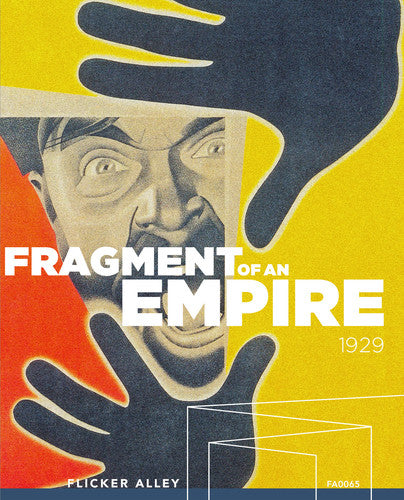FYE
Fragment of an Empire
Fragment of an Empire
Usually ships within 1 to 2 weeks.
Couldn't load pickup availability
SKU:FLAL6865BR
Share
"If influence is the criterion for determining the significance of a film director," writes Russian film scholar Denise J. Youngblood, "then Fridrikh Ermler is perhaps the most important director in Soviet film history." Why he does not join the ranks of Eisenstein, Kuleshov, and Vertov as one of the great masters of Soviet filmmaking is unknown. Yet his legacy as an intricate craftsman of deceptively simple stories layered with psychological depth and technical proficiency lives on in his work. Fragment of an Empire was Ermler's last silent feature and last of four productively contentious collaborations with the method actor Fiodor Nikitin. To prepare for his part as Filimonov-a soldier suffering from total amnesia due to shell shock from the Great War-Nikitin apparently disguised himself as a doctor's assistant in the Forel Psychiatric Clinic, where he studied actual amnesia patients. Ermler, meanwhile, may have drew upon his own first-hand knowledge of war as a former spy of the tsarist army to create a profoundly realistic and moving portrait of a man whose memories begin to awaken in concert with the radical transformation of the Bolshevik Revolution of October 1917. Based primarily on a 35mm nitrate print held at EYE Filmmuseum in Amsterdam, this restoration of Fragment of an Empire was supplemented with a 35mm nitrate print from the Cinémathèque Suisse, which provided the original Russian intertitles as well as a small number of shots missing from the primary source. Titles absent from the Swiss print were reproduced based on Russian censor records. A partnership between EYE Filmmuseum, Gosfilmofond of Russia, and the San Francisco Silent Film Festival, the restoration would not have possible without the perseverance and meticulous scholarship of archivist Peter Bagrov. The film is accompanied by a choice of two musical scores: a brilliant new score composed and performed by Stephen Horne and Frank Bockius as well as an adaptation of Vladimir Deshovov's 1929 piano score, performed by Daan van den Hurk.



